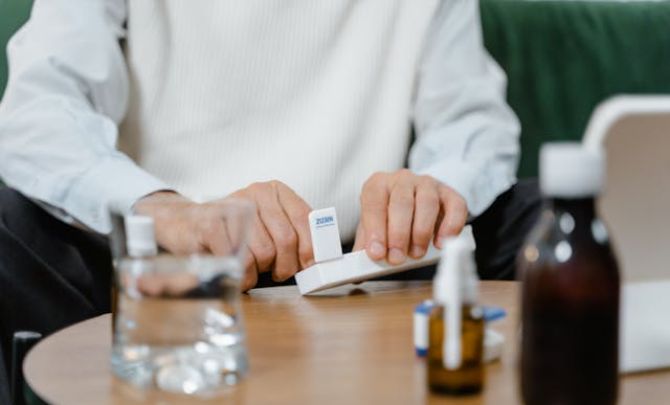Achieving long-term sobriety is a significant challenge for individuals struggling with substance use disorders.
Drug and alcohol rehab centers play a crucial role in helping people overcome addiction and build healthier lives. These facilities provide structured environments, evidence-based treatments, and comprehensive support systems that address the physical, emotional, and psychological aspects of addiction. By creating personalized recovery plans, incorporating therapy, and fostering peer connections, rehab centers empower individuals to develop resilience and maintain sobriety. We will explore the key factors that make drug and alcohol rehab centers effective in supporting sustainable recovery and transforming lives. For more information, visit Pacific Ridge homepage.
The Importance of Individualized Treatment Plan
Effective rehab centers prioritize individualized treatment plans tailored to each person’s unique circumstances and needs. Addiction is a complex condition influenced by various factors, including genetics, environment, mental health, and personal experiences. A one-size-fits-all approach often fails to address the root causes of addiction or the specific challenges an individual may face in recovery.
Personalized treatment plans typically begin with a thorough assessment of the individual’s physical health, mental well-being, substance use history, and social circumstances. This evaluation helps create a targeted strategy, incorporating medical detoxification, therapy, and aftercare support. For instance, someone with co-occurring mental health disorders may require integrated treatment addressing both addiction and their mental health condition simultaneously. This dual-focus approach can significantly improve the likelihood of achieving and maintaining sobriety. Moreover, individualized plans ensure flexibility, allowing adjustments as the person progresses through different stages of recovery. By addressing each person’s unique needs, rehab centers maximize the potential for lasting success.
Therapeutic Interventions and Behavioral Therapie
Therapeutic interventions and behavioral therapies are foundational components of successful rehab programs. These therapies help individuals understand the underlying causes of their addiction, develop coping strategies, and replace harmful behaviors with healthier alternatives. Cognitive Behavioral Therapy (CBT), for example, is a widely used approach that helps individuals identify negative thought patterns and behaviors contributing to substance abuse. By challenging these patterns, people can develop skills to manage triggers and prevent relapse.
Group therapy also plays a vital role in the recovery process. It fosters a sense of community, reduces feelings of isolation, and allows individuals to share experiences and support each other. Family therapy, on the other hand, addresses dynamics within the family that may have contributed to or been affected by addiction. Family therapy can create a supportive environment for sustained recovery by strengthening communication and rebuilding trust. The combination of these therapeutic approaches equips individuals with tools to navigate challenges and maintain sobriety over the long term.
Medical and Holistic Suppor
Many rehab centers integrate medical and holistic support to address the multifaceted nature of addiction. Medical support, including supervised detoxification and medication-assisted treatment (MAT), helps manage withdrawal symptoms and reduce cravings. MAT, which uses medications like methadone or buprenorphine, is particularly effective for individuals recovering from opioid addiction. This approach stabilizes individuals and allows them to focus on therapy and rebuilding their lives without the overwhelming burden of withdrawal or cravings.
Holistic practices, such as mindfulness, yoga, art therapy, and physical exercise, complement traditional medical approaches by promoting overall well-being. These activities encourage self-reflection, reduce stress, and improve emotional health. For example, mindfulness techniques can help individuals become more aware of their thoughts and feelings, allowing them to manage stress without substance use. Similarly, physical exercise releases endorphins, improving mood and reducing anxiety. The integration of medical and holistic support addresses both the physical and psychological dimensions of addiction, fostering a well-rounded recovery.
Aftercare and Long-Term Suppor
The transition from a structured rehab environment to everyday life can be a vulnerable period for individuals in recovery. Aftercare programs are crucial for maintaining progress and preventing relapse. Effective rehab centers recognize the importance of ongoing support and provide resources to help individuals navigate the challenges of post-treatment life.
Aftercare often includes regular counseling sessions, support group meetings, and access to recovery coaches. These resources ensure individuals have a support network during difficult times. Additionally, some centers offer alumni programs that create a sense of community and connection among individuals who have completed treatment. This network can serve as a source of encouragement and accountability. By focusing on long-term support, rehab centers empower individuals to sustain their gains and continue building a healthy, sober lifestyle.
The Role of Peer Support and Community
Building a sense of community is a vital aspect of effective rehab programs. Addiction often isolates individuals, leading to feelings of loneliness and disconnection. Peer support groups within rehab centers help individuals form meaningful connections with others who understand their struggles and share similar goals.
Programs like Alcoholics Anonymous (AA) or Narcotics Anonymous (NA) emphasize the importance of peer support and shared experiences. In these groups, individuals can openly discuss their challenges, celebrate milestones, and gain insights from others’ journeys. This sense of camaraderie fosters a supportive atmosphere where individuals feel less alone and more motivated to maintain sobriety. Peer support extends beyond the rehab program, as participants often attend meetings and stay connected with their recovery community long after treatment ends. This ongoing connection is a powerful tool for sustaining long-term sobriety and resilience.
Drug and alcohol rehab centers play a vital role in supporting individuals on their journey to long-term sobriety. By offering personalized treatment plans, therapeutic interventions, medical and holistic support, and aftercare programs, these centers address the diverse needs of those seeking recovery. Peer support and community connections further enhance the effectiveness of rehab programs, providing individuals with a network of encouragement and accountability. Importantly, rehab centers emphasize resilience and teach individuals to navigate challenges, ensuring that setbacks do not derail their progress. Through these comprehensive approaches, rehab centers empower individuals to build healthier, more fulfilling lives free from addiction.
